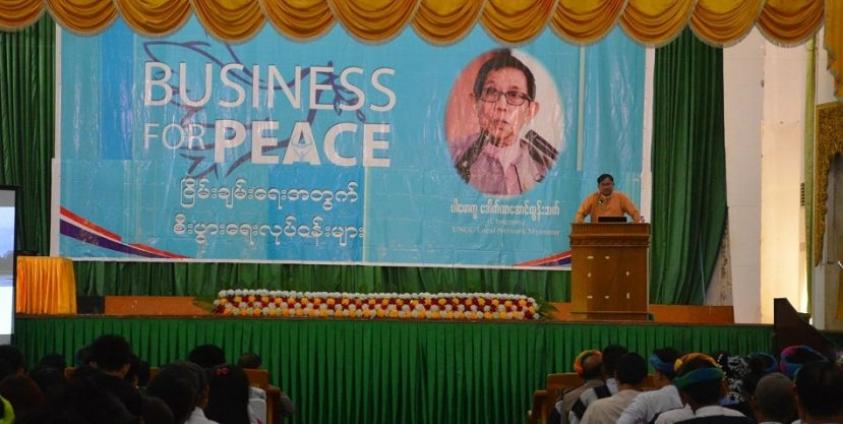Kayin (Karen) State is open for business and ready for investment to pave the way for development, participants at a recent “Business for Peace” forum heard.
The state’s Minister of Planning, Finance and Municipal Affairs U Than Naing said the state is now stable and brimming with business prospects that the government, in collaboration with ethnic armed organizations, is eager to capitalize on.
“When the ethnic armed organizations launched businesses in the past five years, we gave them business opportunities and they carried them out with foreign companies. Now, business persons from the ceasefire organizations have established companies with us and all the taxes will flow into the state without flowing overseas,” said U Than Naing.
He added that as new companies are established in the state, more job opportunities will be created for the local population. State officials have previously expressed concern over “brain drain” with a sizeable portion of the working aged population heading over the border for more lucrative and readily available jobs in Thailand.
The September 14 “Business for Peace” event, held in Hpa-an, attracted around 500 attendees, including members of the Kayin State government, the Pa-O National Liberation Organization, Karen armed organizations, non-governmental organizations and local administrators.
The discussion was led by U Aung Tun Thet, chair of Myanmar’s chapter of the UN’s Global Compact Network, which helps guide responsible business practices.
“Investment is needed to carry out development,” said U Aung Tun Thet. He urged the government to support investment, including by offering financial support where necessary.
Many organizations in Kayin State have resisted the idea of development before political settlements and the lines of ethnic autonomy have been finalized.
Rights groups have said that moving ahead with development projects before political agreements can lead to the displacement of ethnic communities, marginalization of ethnic voices, land disputes and even fresh conflict. Last year, Karen Rivers Watch blamed the contested Hat Gyi dam for fueling fighting between the Tatmadaw and Democratic Karen Buddhist Army, which displaced thousands of people.
Former leaders of the Karen National Union (KNU) have previously vocally opposed any large development projects in Kayin State until a “stable peace” could be achieved. The KNU signed a bilateral ceasefire with the government in 2012 and was one of the eight ethnic armed groups to join the nationwide ceasefire agreement in 2015.








